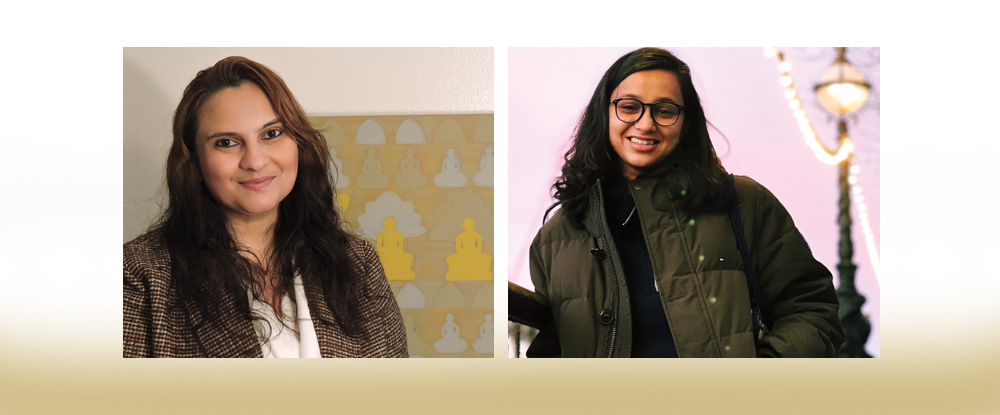2022 ROTHMAN FACULTY SUMMER FELLOWS
- Konstantinos Alexakis (Landscape Architecture)
The Plot of Whately’s Observations - Rodrigo Borges (Philosophy)
Knowledge After Gettier: The Place of Knowledge in Contemporary Philosophy - Rachel Gordan (Religion)
Becoming The Y: The Story of the 92nd Street Young Men’s Hebrew Association - Paul Gutierrez (Political Science)
Incorporating America, 1763-1823: The Settler Colonial and Revolutionary Origins of the Modern Corporation in America - Fernanda Bretones Lane (History)
Shores of Asylum: Fugitivity, Empire, and Slavery in the Colonial Caribbean - Anton Matytsin (History)
A History of History: The Académie des inscriptions and the Remaking of the Past - Paola Uparela (Spanish)
Well-Being for the (Re)production of the Indigenous Population: Las Casas’s Remedies (1516) in Guaman Poma’s Good Government (1615) - Velvet Yates (Classics)
Learning to Carve an Ancient Greek Sculpture: The 3-Caliper Method
2022-23 TEDDER FAMILY DOCTORAL FELLOWS
- Suvendu Ghatak (English)
Malarial Modernity: Colonialism and the Politics of Health in Modern South Asia - Katherine McNamara (Environmental and Global Health)
People, Plants, and Pandemics: How Past and Present Crises Shape the Fate of the ‘Andean Wonder Drug’
2022-23 ROTHMAN DOCTORAL FELLOWS
- Belay Alem (Anthropology)
Heirs’ Property in African American Communities in Alachua County, Florida: Inheritance, Taxation and Security - Tim Blanton (History)
When Main Street Met Wall Street: Bucket Shops and the Rise of the American Retail Investor - Erika Davis (Teaching and Learning)
Exploring Latinx Educational Advocacy and City Politics in the New Latinx Diaspora - Zheyuan Deng (Religion)
The Spatial Histories of Ahmadiyya in Nigeria - Abigail Lindo (Music)
Sensing Azorean Autonomous Identity: A Feminist Ethnography of São Miguel’s Sonic Culture - Mandy Moore (English)
Just Fandom Things: A New Materialist Approach to Fandom Rhetoric - Rachel Polinsky (Art History)
“Fair-Ankled” Korai: Feet, Foot, Footwear, and a Reconsideration of Stylistic Progression in the Art of Ancient Greece - Yekatit Tsehayu (Religion)
Intersectional Agency of Contemporary Revivalist Muslim Women in Ethiopia
The Rothman and Tedder Doctoral Fellowships provide funding for doctoral students to conduct research for their dissertation. Despite the challenges of the pandemic, doctoral students made significant progress on critical topics. We highlight two international students whose work illuminate food and religion in India.
Meghna Sapui (English), Tedder Family Doctoral Fellow
“Edible Empire: Eating in Indian Anglophone Literature, 1820-1910”
Meghna Sapui is a Ph.D. candidate in English at the University of Florida who is writing a dissertation on food cultures and eating practices in Indian Anglophone literature from 1820 to 1910.
The Tedder Family Doctoral Fellowship provided Sapui with the funds to undertake archival work at the British Library, where she studied Famine Maps and India Office Records Army Lists. She had the opportunity to explore rare books, including Captain George Francklin Atkinson’s Indian Spices for English Tables. The British Library is one of only a handful of places in the world to hold the 1860 print version of this book. Based on her research, Sapui argues that we need to understand culinary culture as it shapes colonial power, and even now, sustains in India.
Venu Mehta (Religion), Rothman Doctoral Fellow, Bhagwan Chandraprabhu Postdoctoral Fellow in Jain Studies, Claremont School of Theology, Assistant Professor of Comparative Religions
“The Making of a Jaina Divinity: Devotion for the Jaina Goddess Padmāvatī among the Śwetāmbar Mūrtipūjak in Gujarat”
Venu Mehta studies the emergence of devotional practices around the Jain goddess, Padmāvatī.
As a Rothman Doctoral fellowship recipient, Mehta connected with resources in India that included Jain temples, repositories, and local libraries. Through this, she collected published and unpublished materials, including narrative and eulogistic literature, liturgical texts, religious writings on the importance of the goddess, and devotional songs. Acquiring this information demonstrated the emergence and organization of the goddess in the Jains’ religious and social life in Gujarat. As no other study has approached this focus in the Gujarati language, Mehta’s project will advance the field of regional forms of bhakti (devotion) and goddesses in religious traditions such as Jainism.
